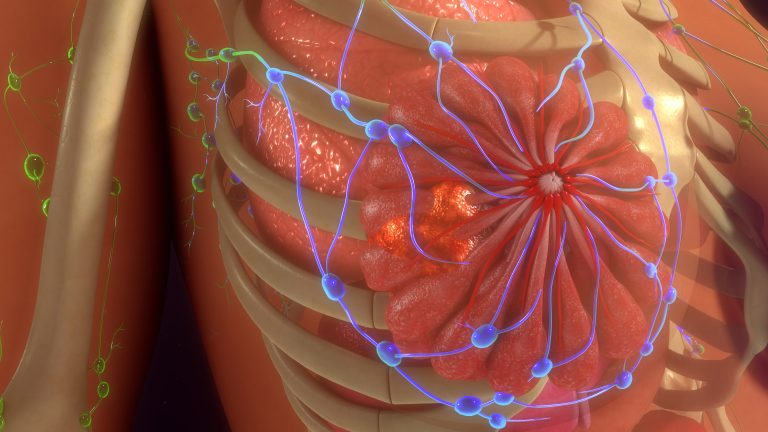
For the first time, researchers from the Vall d’Hebron Institute of Oncology’s (VHIO) Models of Cancer Therapies Group (Vall d’Hebron Barcelona Hospital Campus), and VHIO-born spin-off Peptomyc, have shown in a new mouse study that MYC inhibition is anti-metastatic in breast cancer. The researchers demonstrated how MYC inhibition by Omomyc dramatically reduces both primary and metastatic growth in breast cancer.
Their findings are published in the journal Cancer Research Communications in a paper titled, “MYC Inhibition Halts Metastatic Breast Cancer Progression by Blocking Growth, Invasion, and Seeding.”
“MYC’s role in promoting tumorigenesis is beyond doubt, but its function in the metastatic process is still controversial,” wrote the researchers. “Omomyc is a MYC dominant negative that has shown potent antitumor activity in multiple cancer cell lines and mouse models, regardless of their tissue of origin or driver mutations, by impacting on several of the hallmarks of cancer. However, its therapeutic efficacy against metastasis has not been elucidated yet. Here we demonstrate for the first time that MYC inhibition by transgenic Omomyc is efficacious against all breast cancer molecular subtypes, including triple-negative breast cancer, where it displays potent antimetastatic properties both in vitro and in vivo.”
“Considering the results of our previous studies that have clearly demonstrated Omomyc’s efficacy in primary tumors, we hypothesized that targeting MYC could also be efficacious against metastatic breast cancer,” said Laura Soucek, PhD, corresponding author of this study, co-founder and CEO of Peptomyc, and an ICREA research professor.
“Our results illuminate the relevance of MYC inhibition in metastatic disease, and are particularly timely now that MYC inhibitors, including our first Omomyc-derived compound, OMO-103, are reaching the clinic,” added Soucek.
“We have now demonstrated that MYC inhibition by Omomyc exerts a dramatic effect on the metastatic process, from tumor growth, invasion to seeding. Findings evidenced a striking reduction in both primary tumor and metastatic growth. In some cases, metastases were even eradicated,” said Daniel Massó-Vallés, PhD, first author of this study and a postdoctoral researcher and project manager at Peptomyc.
This study shows the promise of Omomyc as an anti-metastatic therapy against breast cancer.






![AI Algorithm Could Reduce Breast Cancer Mammogram False Positive Rate The primary goal of the Paradigm Registry is to accelerate tumor profiling based on disease biology. [iStock/LilliDay]](https://www.insideprecisionmedicine.com/wp-content/uploads/2019/01/307-218x150.jpeg)






